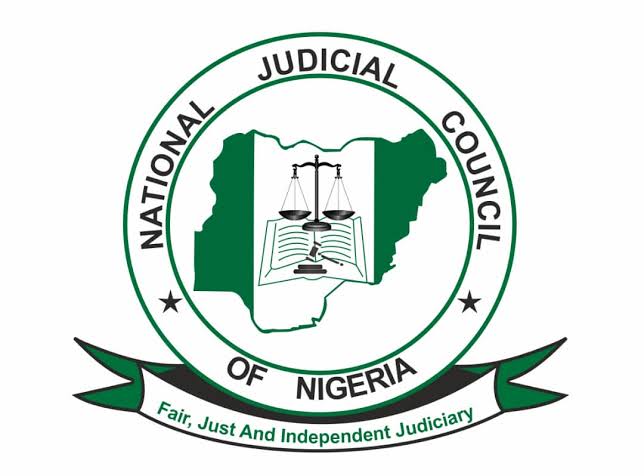Daud Olatunji
Amid a wave of public discontent surrounding the pronouncements and decisions of various lower and appellate court justices, the National Judicial Commission (NJC) has embarked on a comprehensive self-audit of the judiciary, signaling a commitment to transparency and accountability.
A member of the Court of Appeal,Justice Moore Adumein has found himself at the center of the disciplinary storm, stemming from a contentious order issued in the Kano State governorship appeal.
The controversy, however, transcends the judgment itself, as the NJC targets Justice Adumein for failing to detect and rectify a typographical error embedded in the contentious ruling.
Insiders reveal that the NJC, recognizing the gravity of the error, is set to impose sanctions on Justice Adumein.
Despite assertions that the error originated from a clerical oversight rather than intentional misconduct, the judiciary asserts that accountability remains paramount, emphasizing that ignorance is not a lawful excuse.
A source close to the matter divulged that a significant portion of the public discourse on the Kano judgment is based on incomplete information, with many commentators yet to thoroughly examine the content.
The identified clerical error, described as an honest mistake, becomes the focal point for Justice Adumein’s impending accountability.
The source emphasized that responsibility extends beyond the judge to encompass the clerk and secretary involved in processing the judgment.
While acknowledging the clerical origin of the mistake, the source maintained that all parties responsible must face the consequences, reinforcing the judiciary’s commitment to maintaining the highest standards.
In an era where public trust in institutions is paramount, the NJC’s move to openly address and rectify internal errors signifies a broader commitment to transparency.
The NJC, according to the insider, is distinctively transparent compared to other branches of government, naming and shaming judicial officers found culpable of infractions.
The source revealed that the NJC, overseeing the salaries of judges nationwide, possesses the authority to discipline its members.
By functioning as a quasi-judicial body, the NJC ensures a fair and rigorous evaluation process for complaints against justices.
Despite a significant percentage of petitions being deemed frivolous, the NJC diligently investigates those with merit, resulting in suspensions or dismissals when infractions are substantiated.
The insider concluded by asserting that the judiciary’s willingness to name and shame its own distinguishes it from other arms of government.
Do you want to share a story with us? Do you want to advertise with us? Do you need publicity for a product, service, or event? Contact us on WhatsApp +2348183319097 Email: platformtimes@gmail.com
We are committed to impactful investigative journalism for human interest and social justice. Your donation will help us tell more stories. Kindly donate any amount HERE




